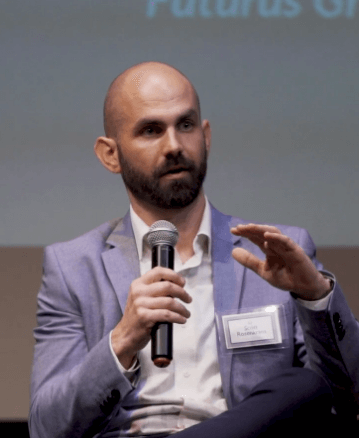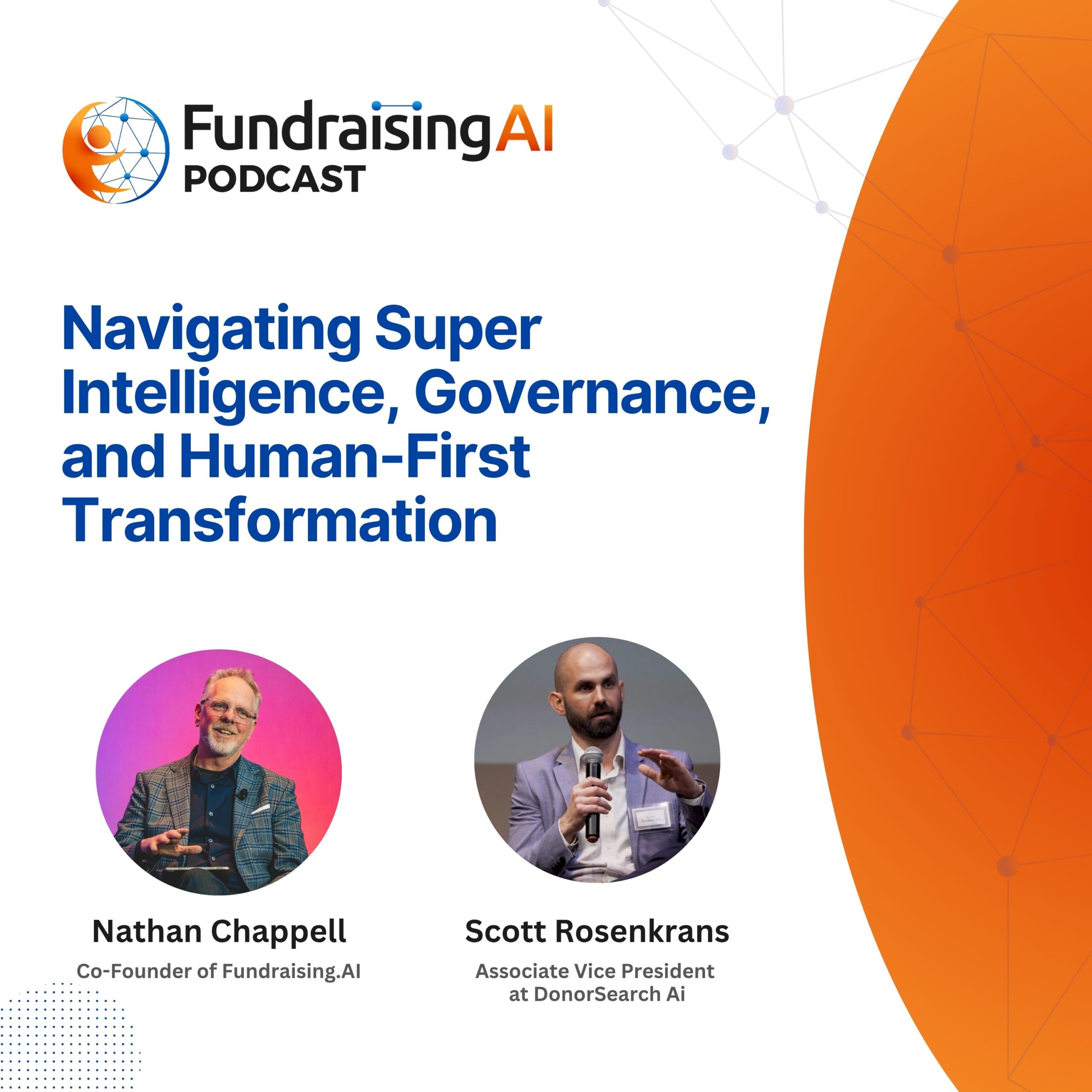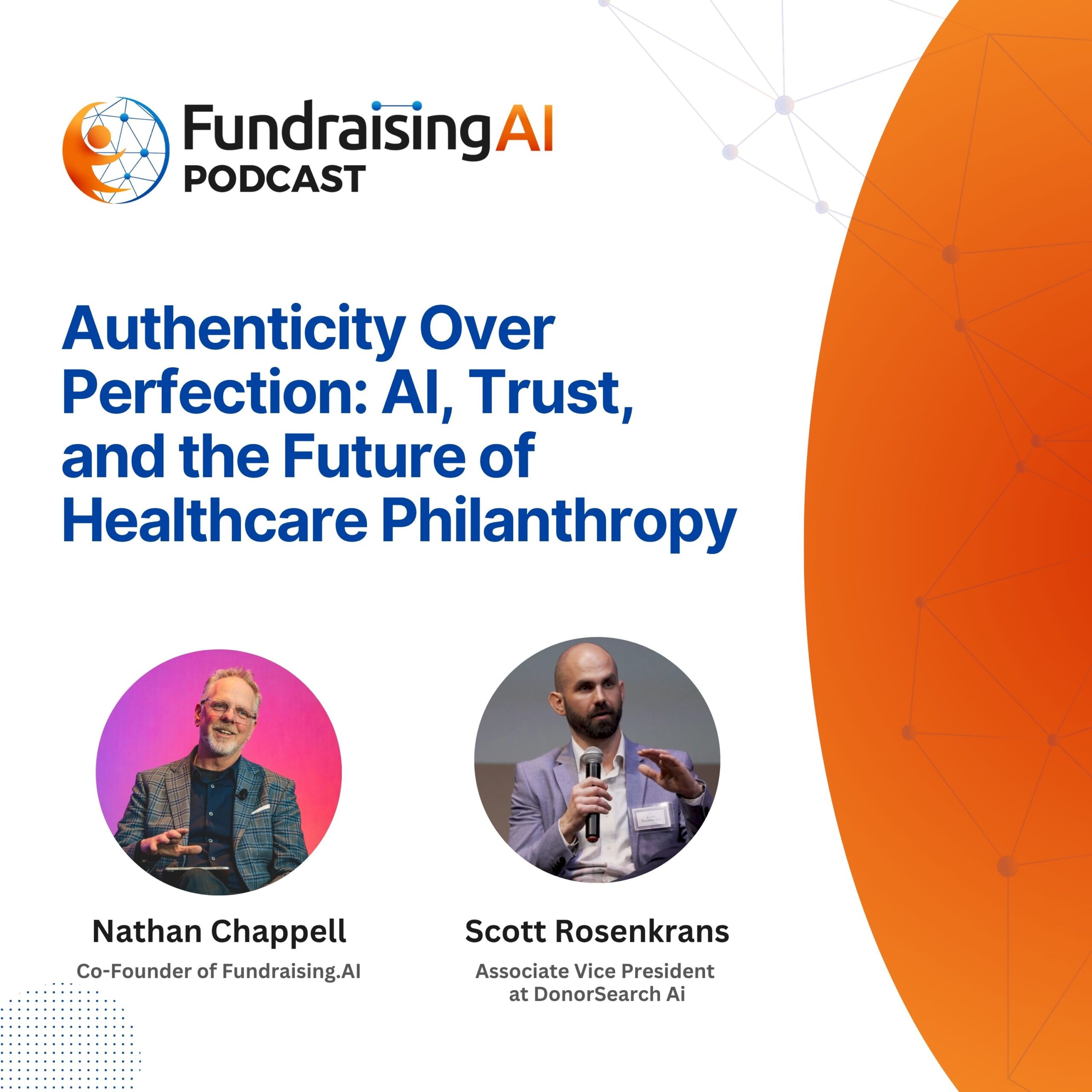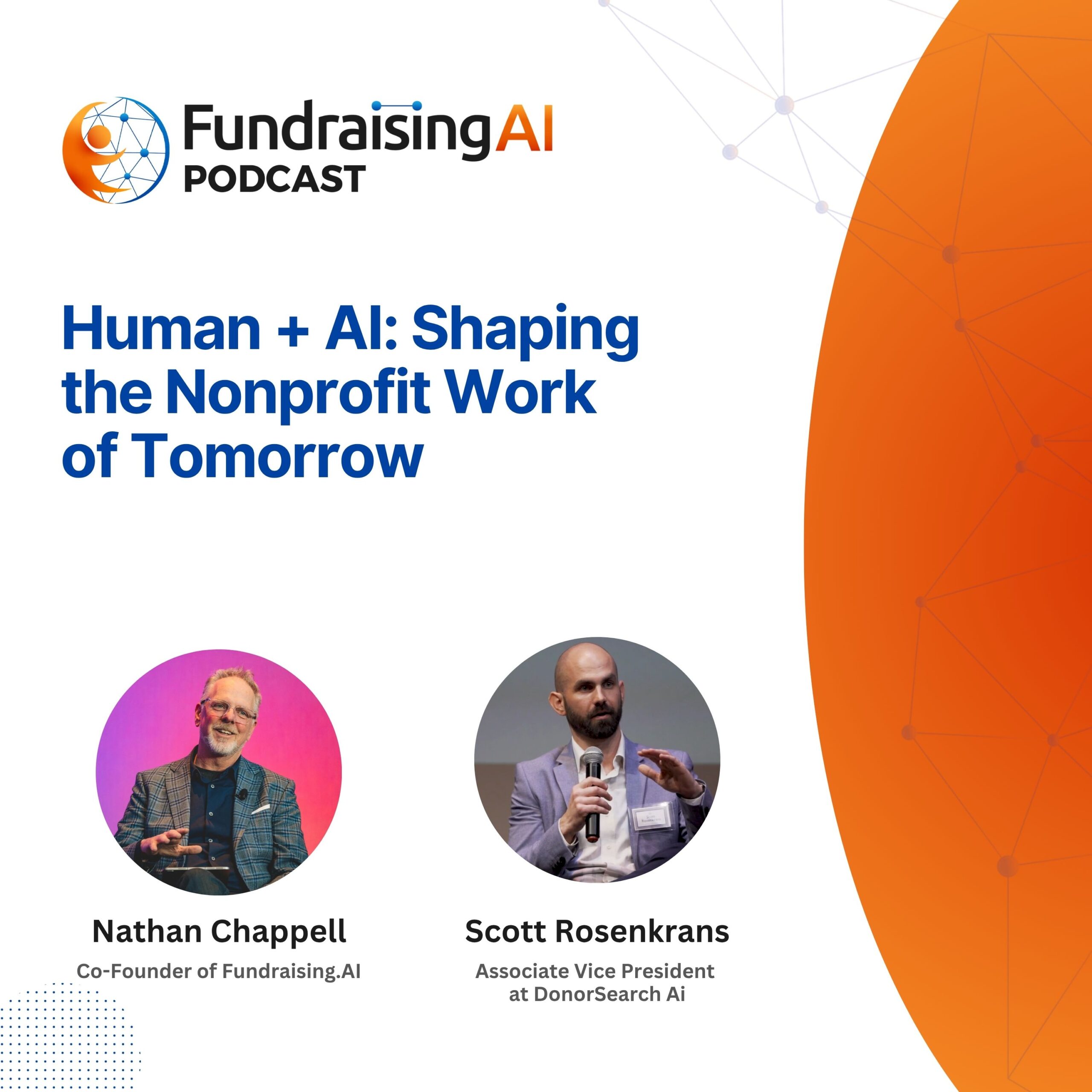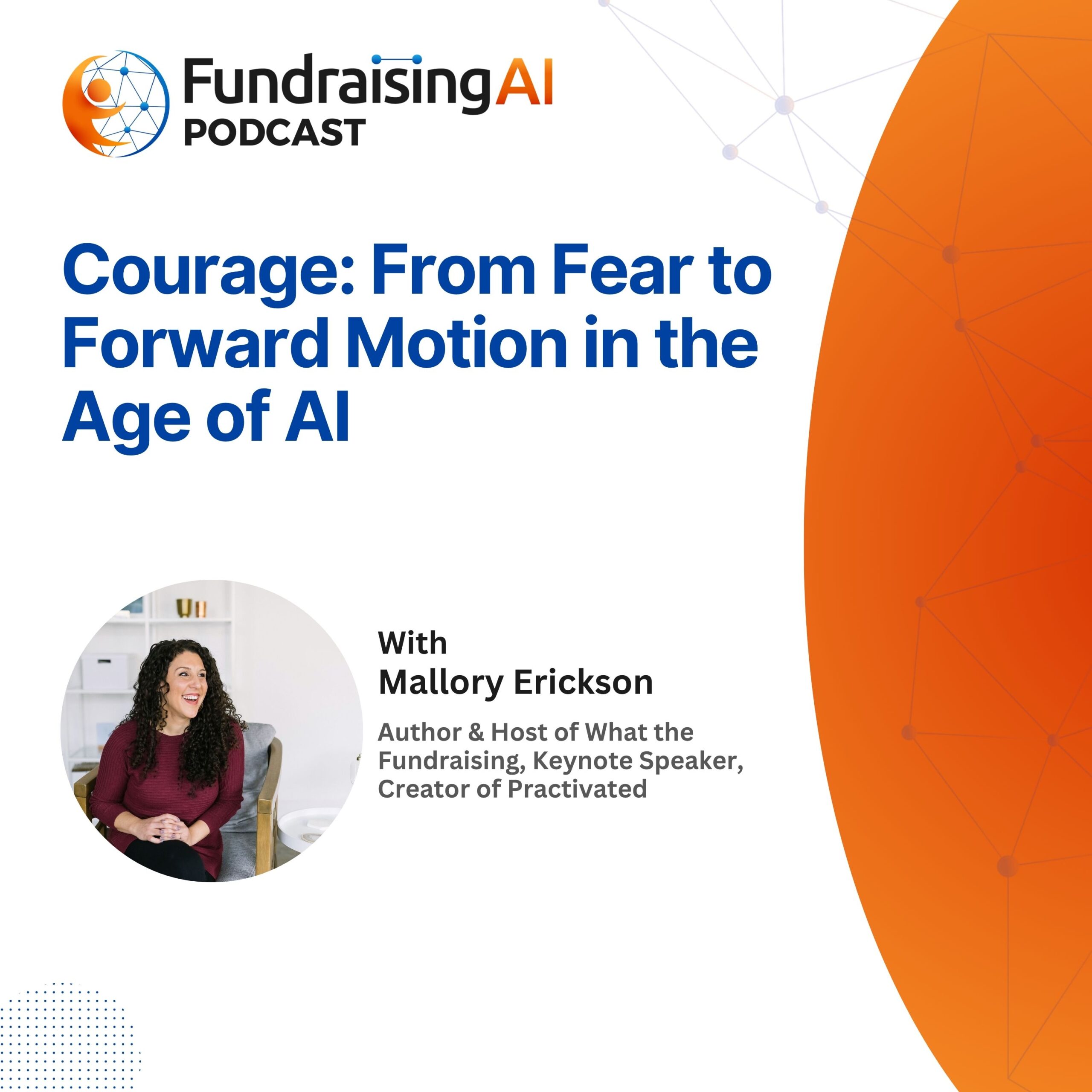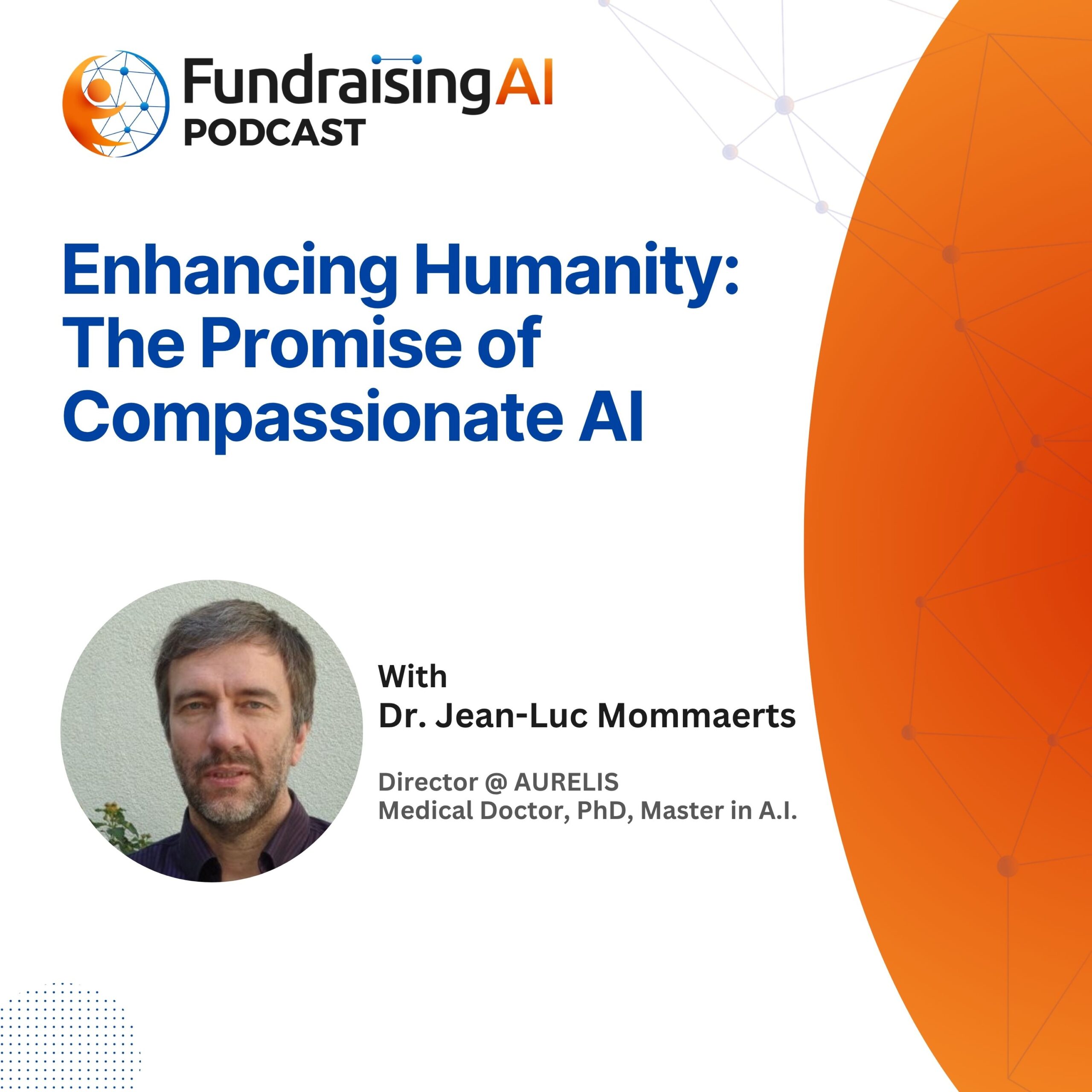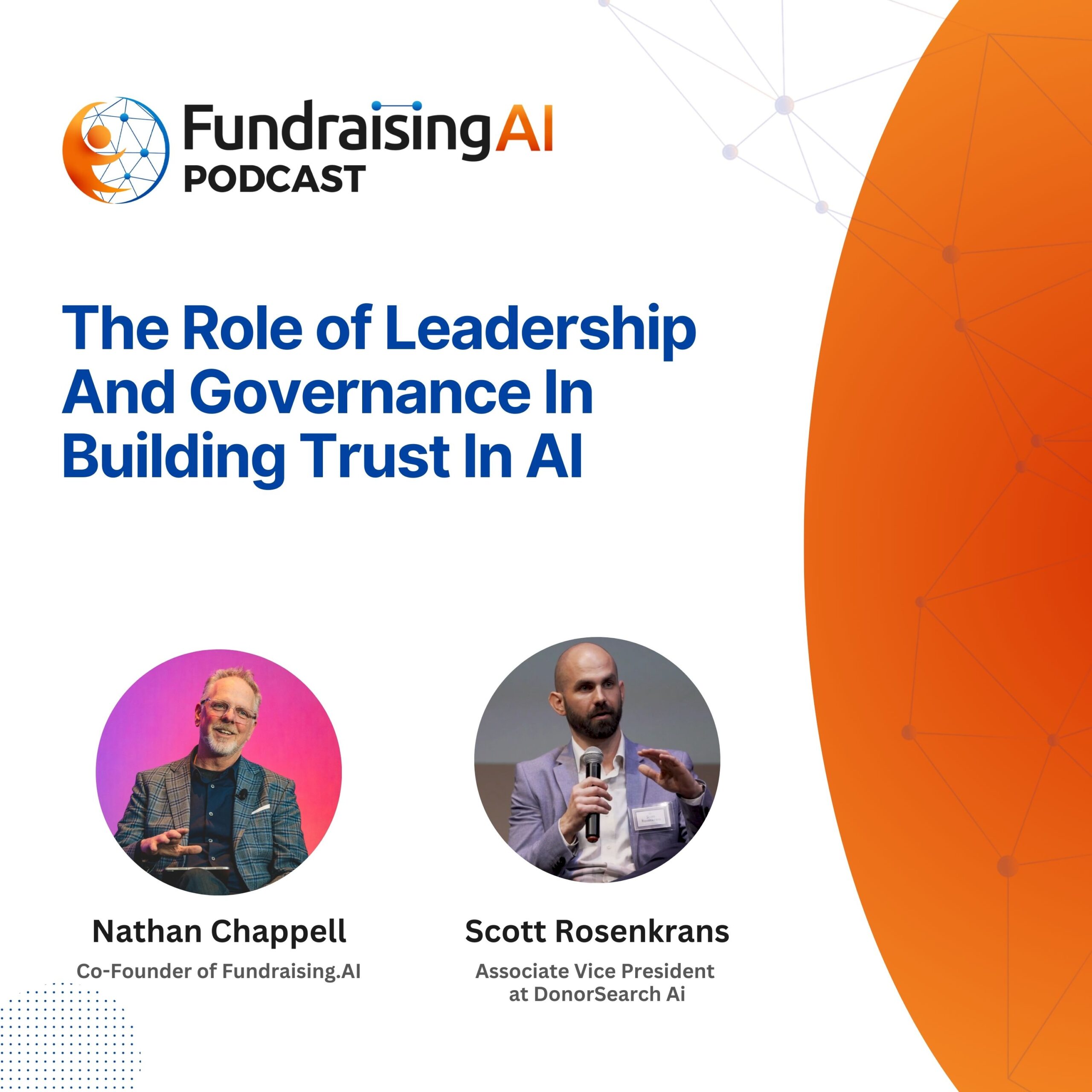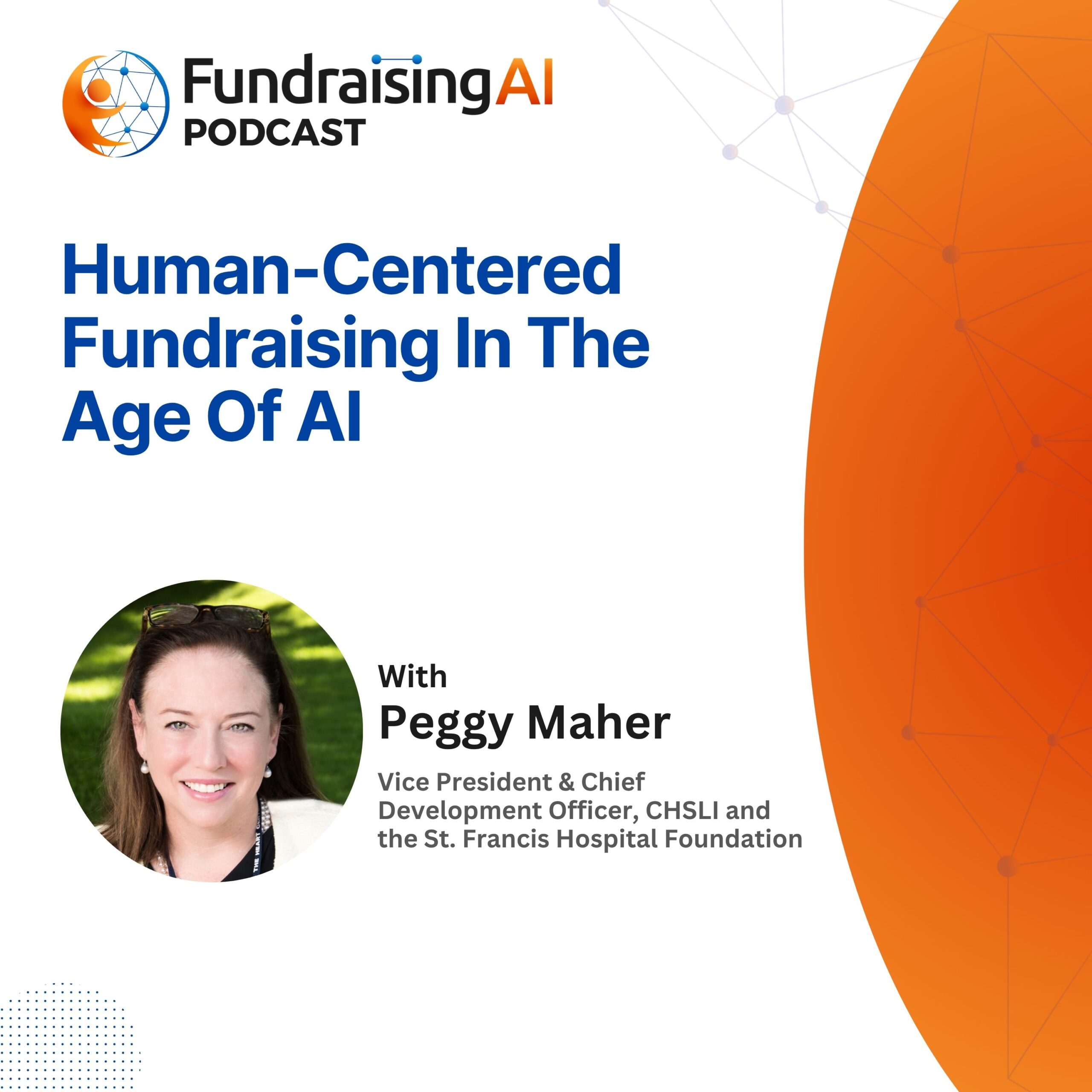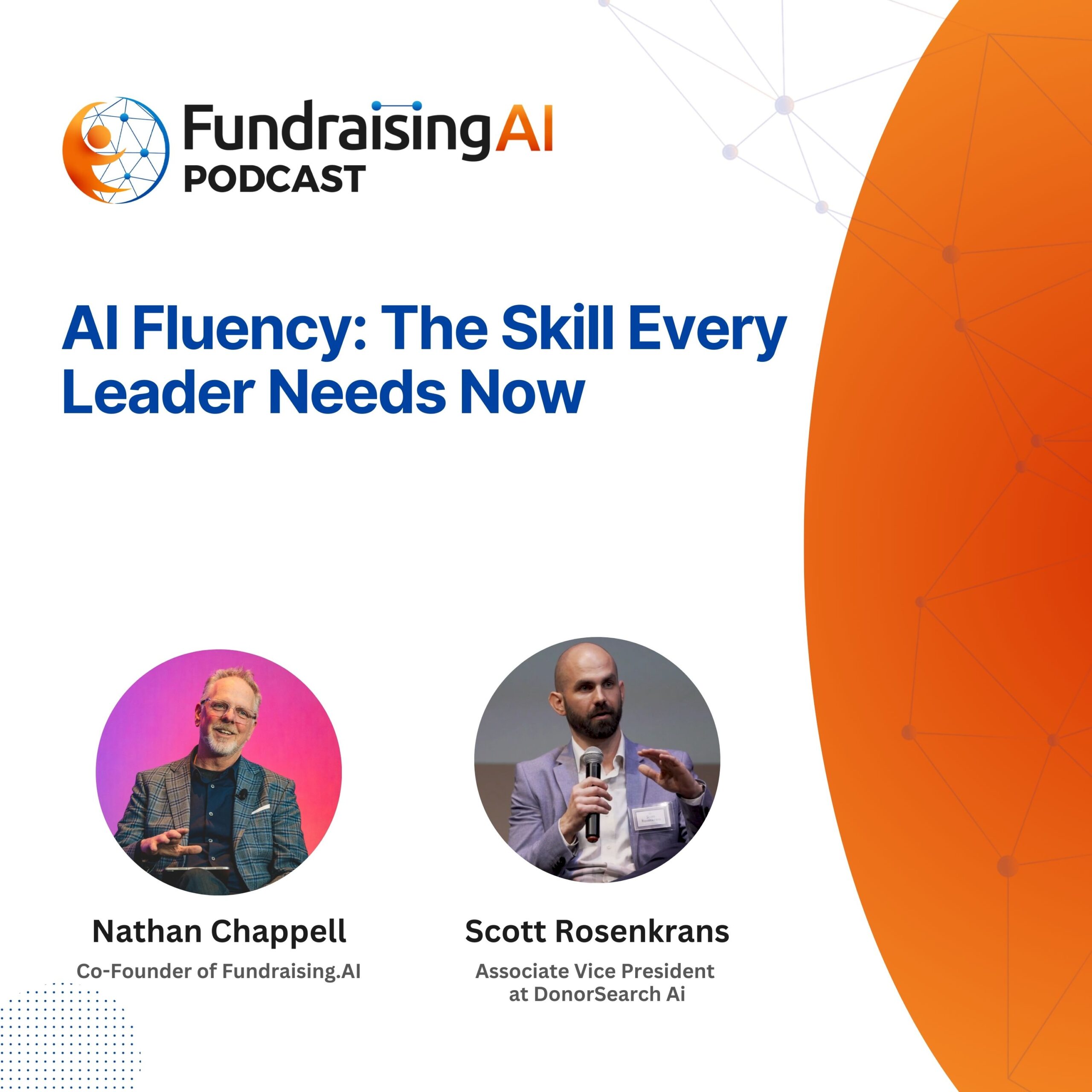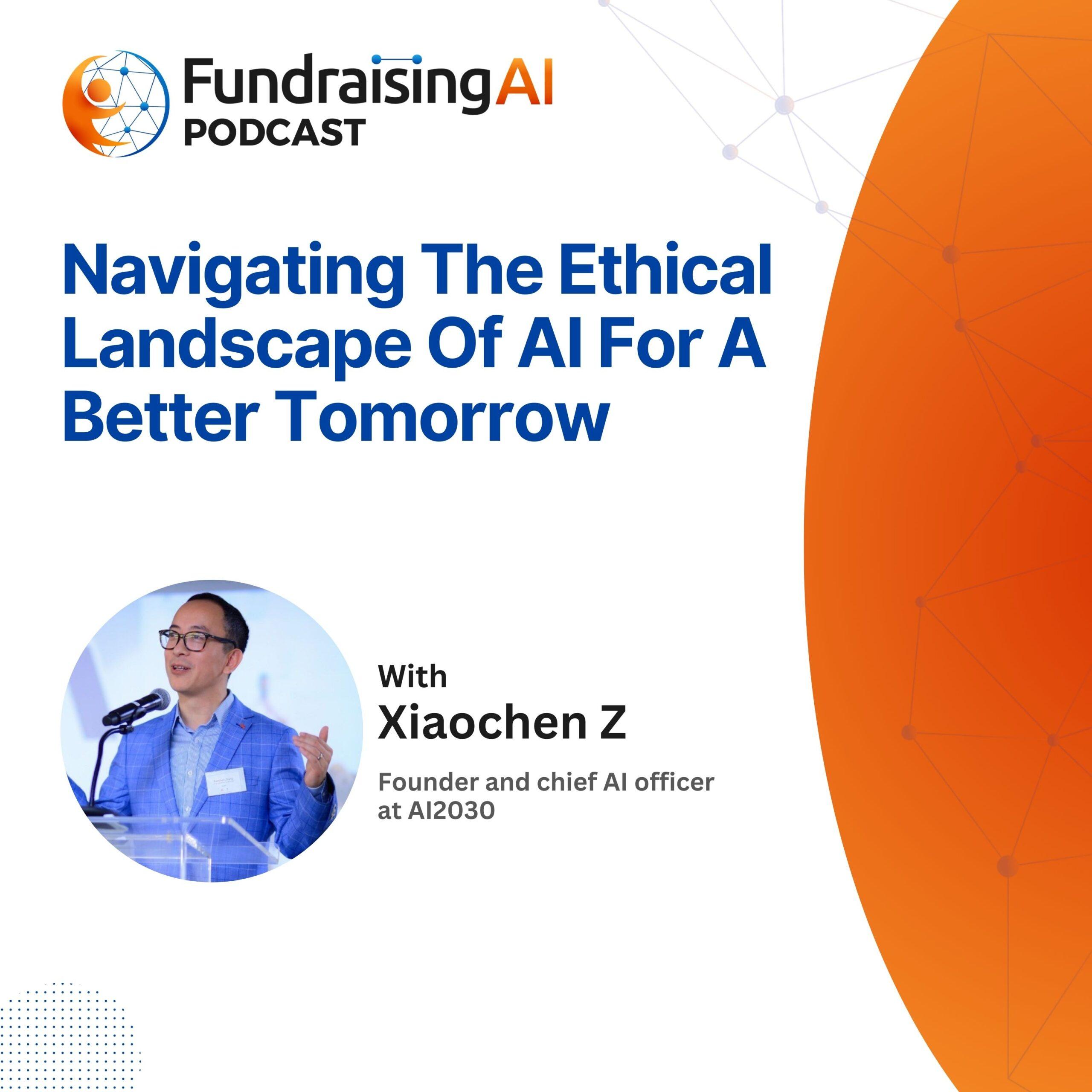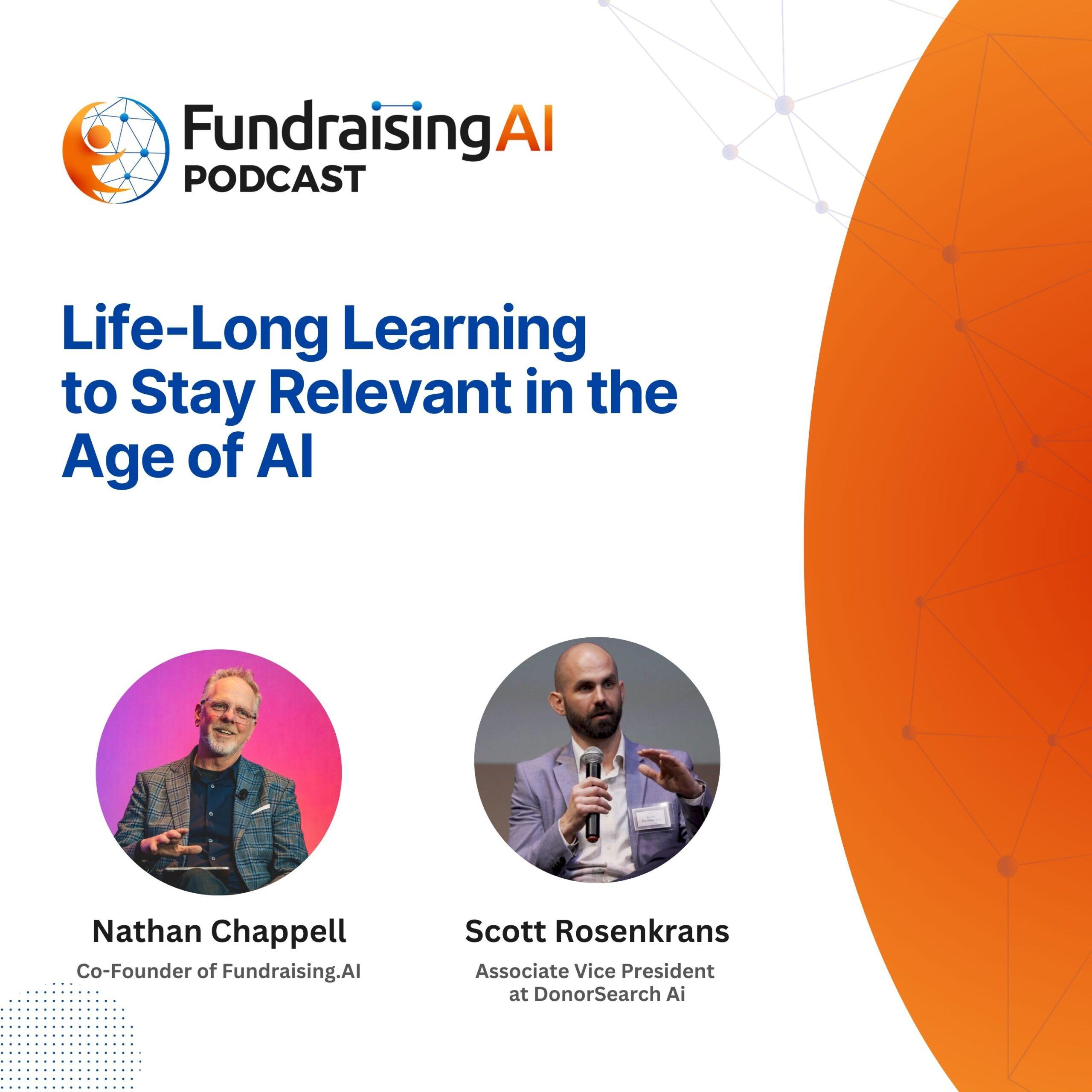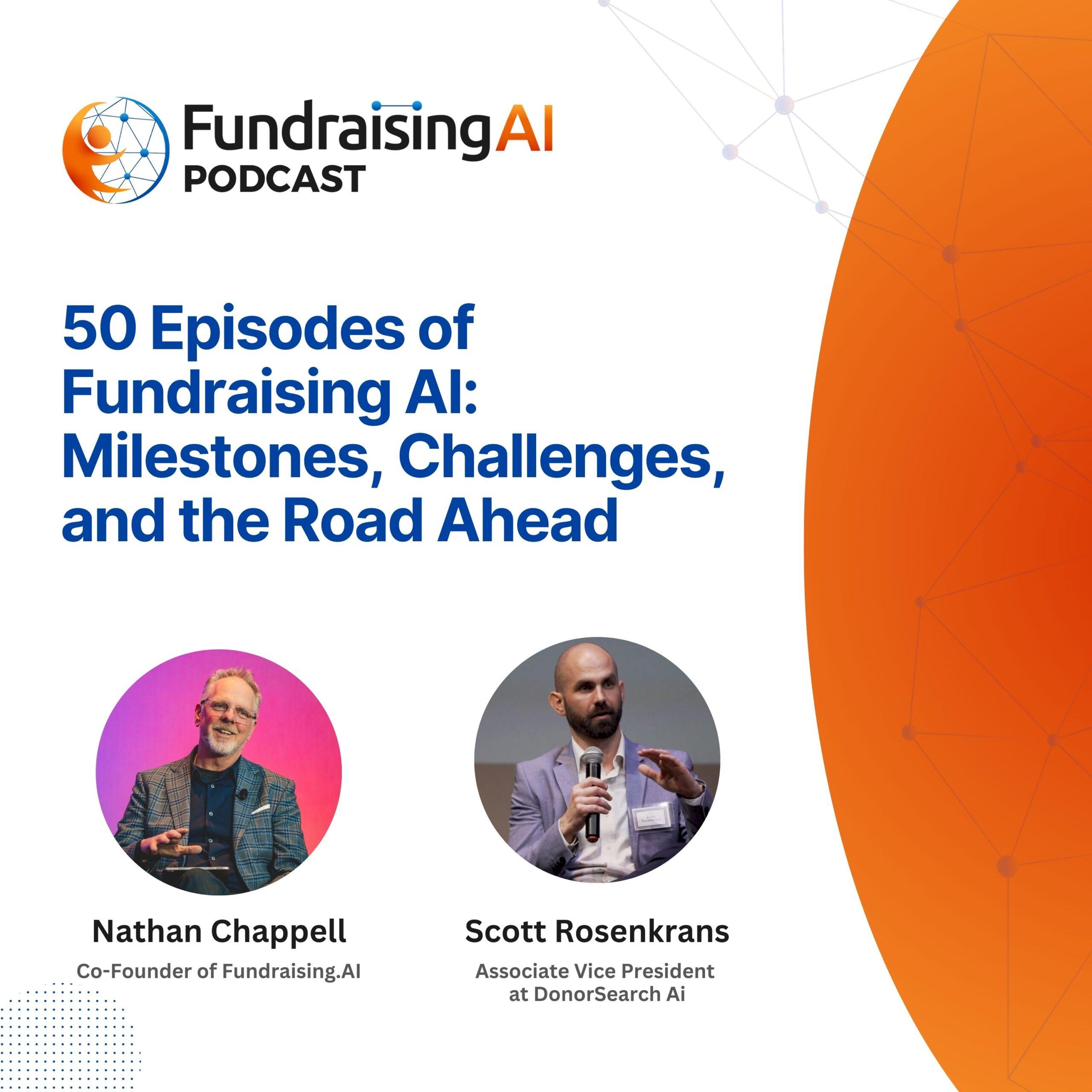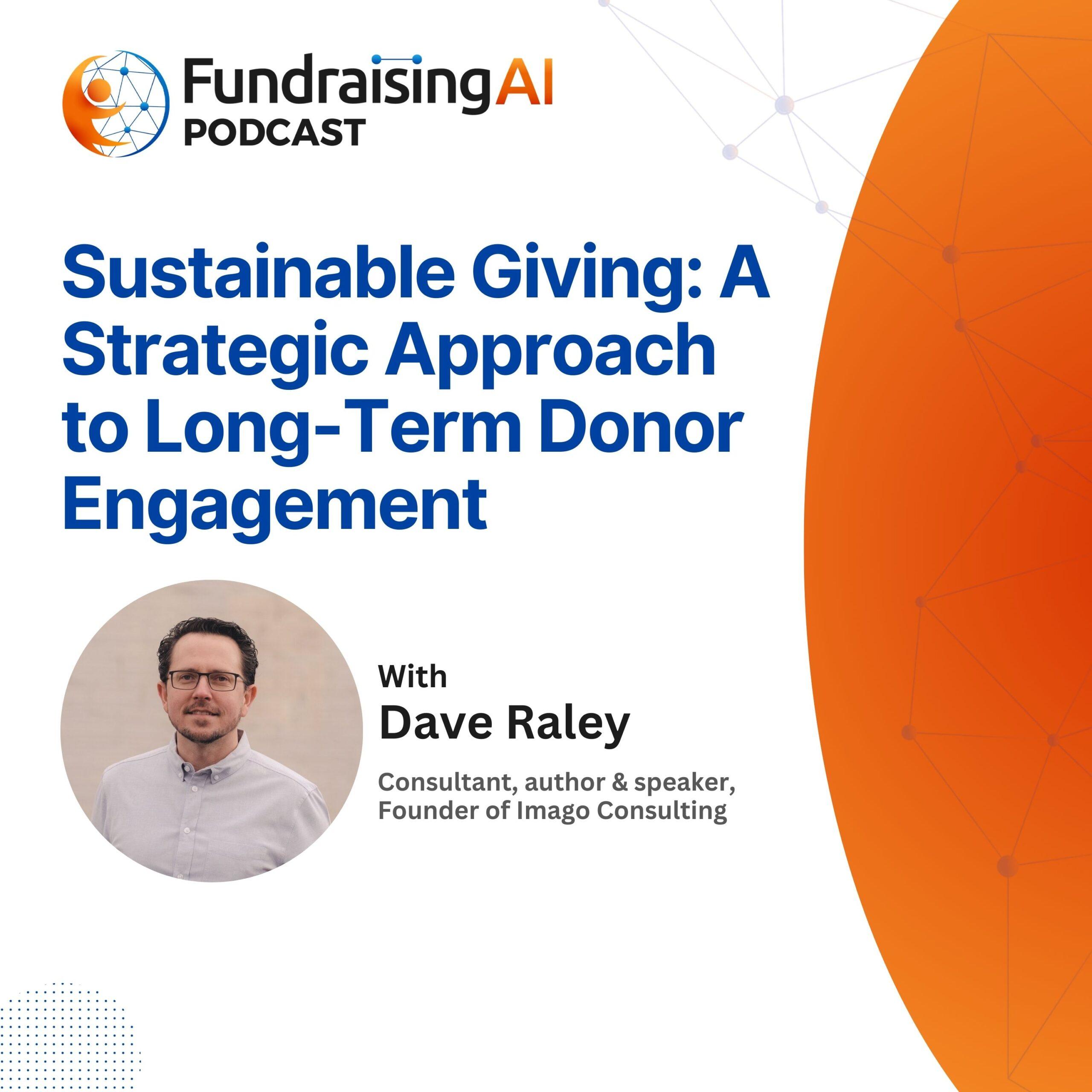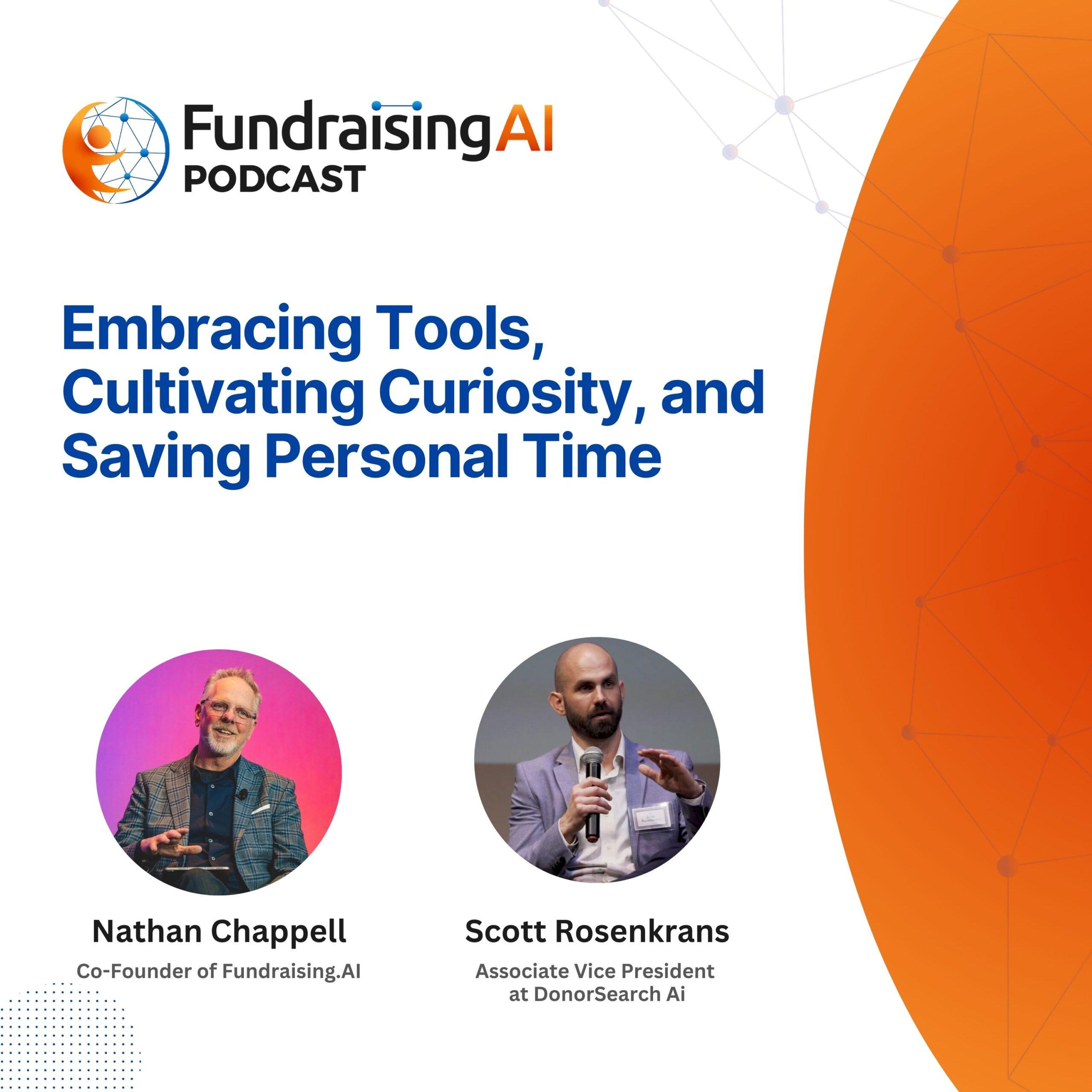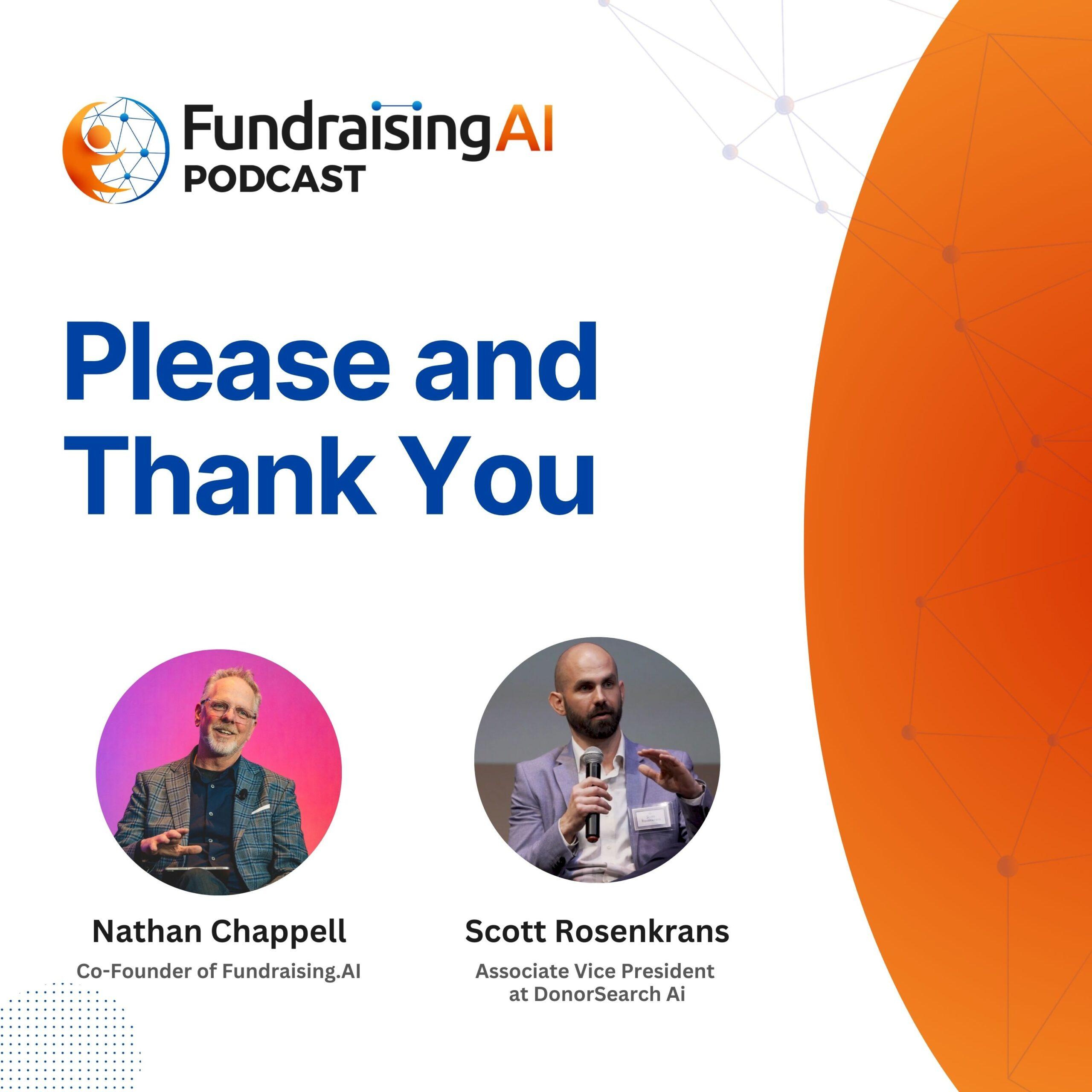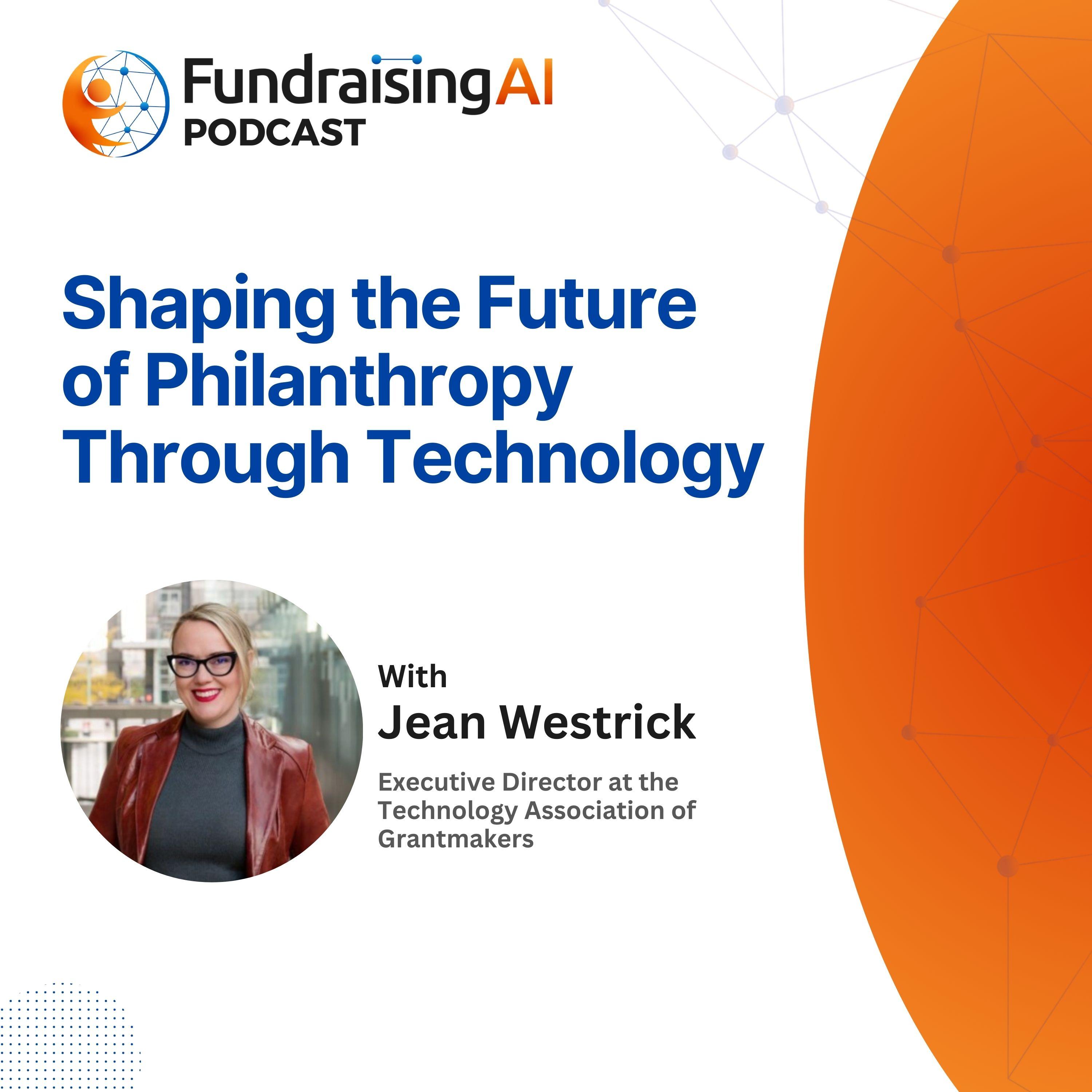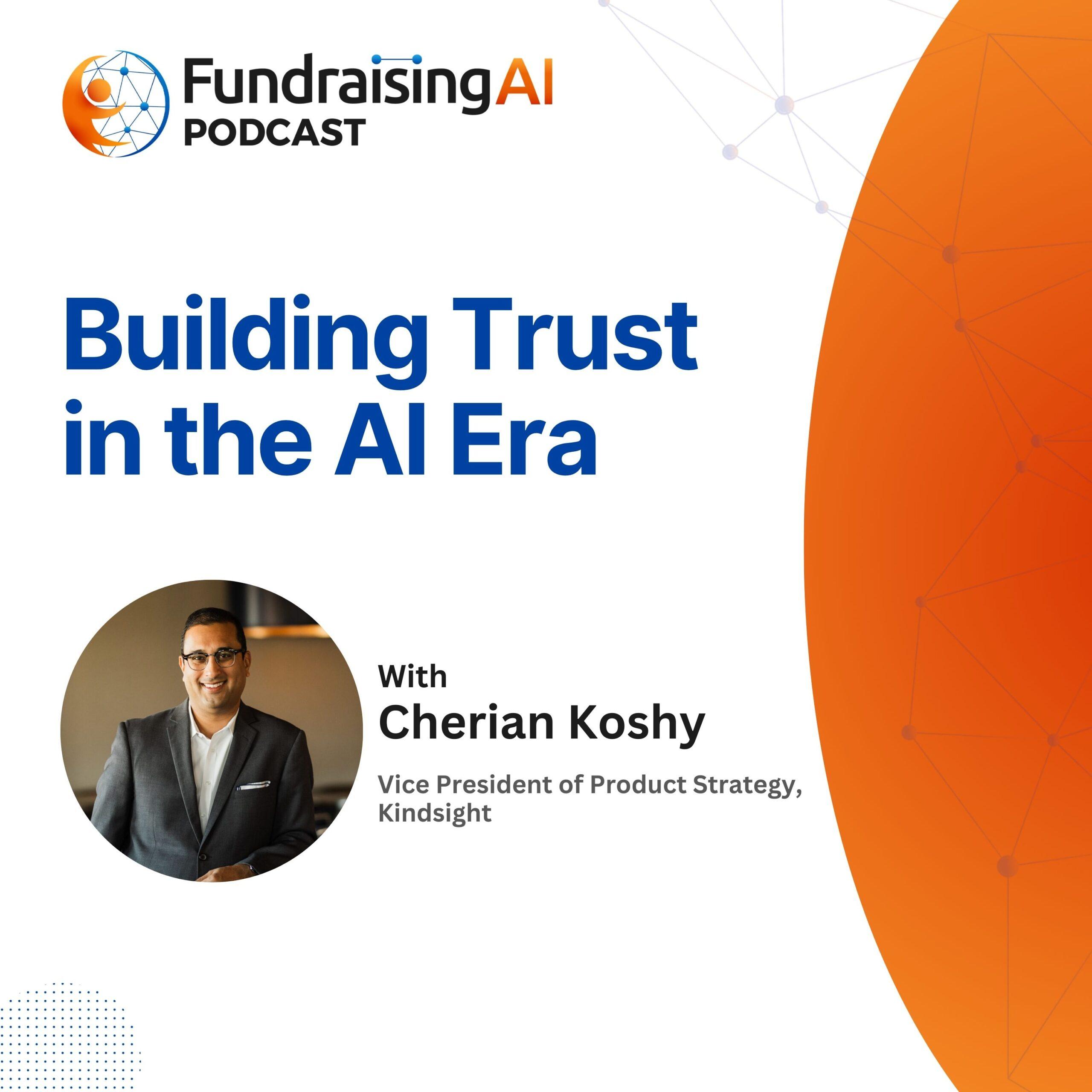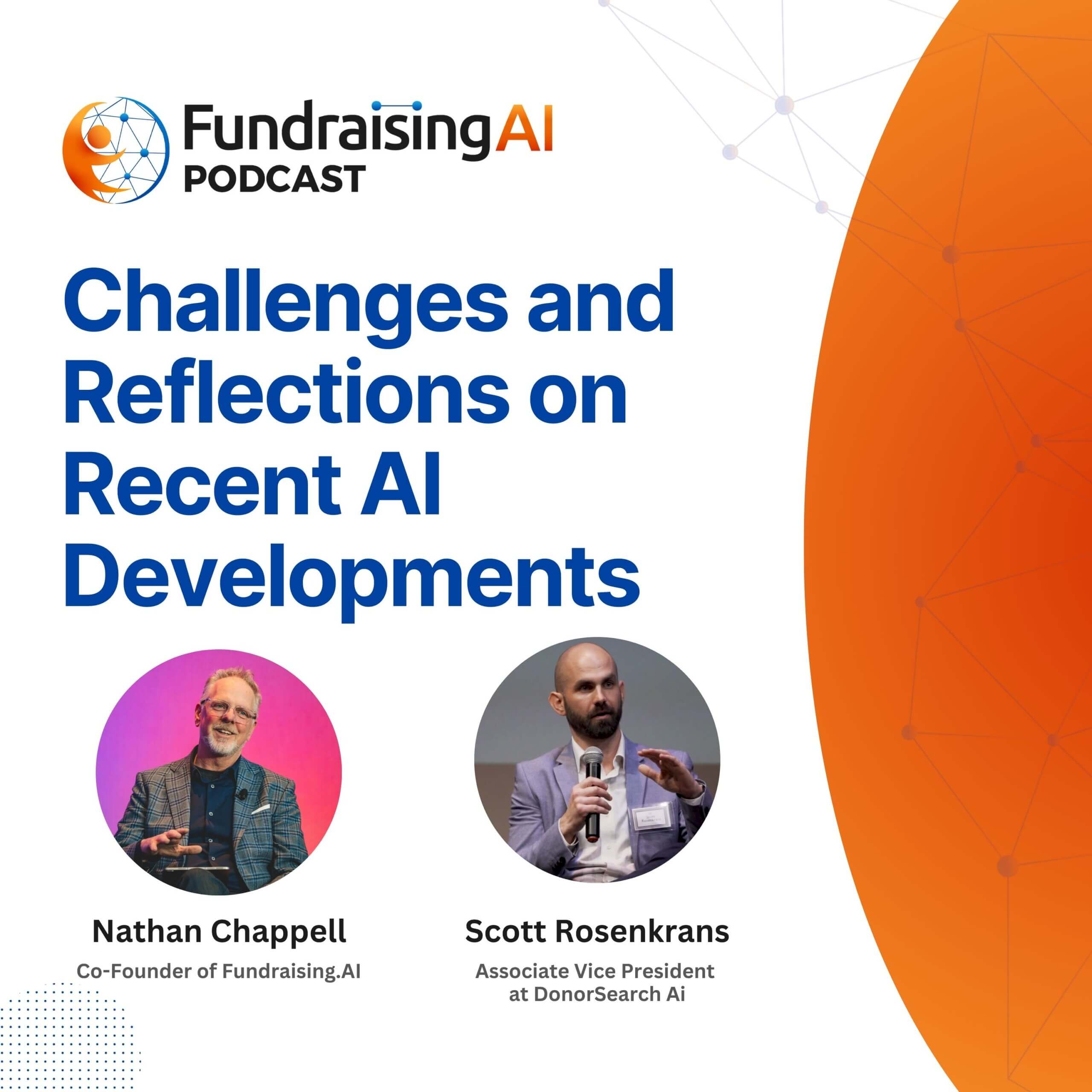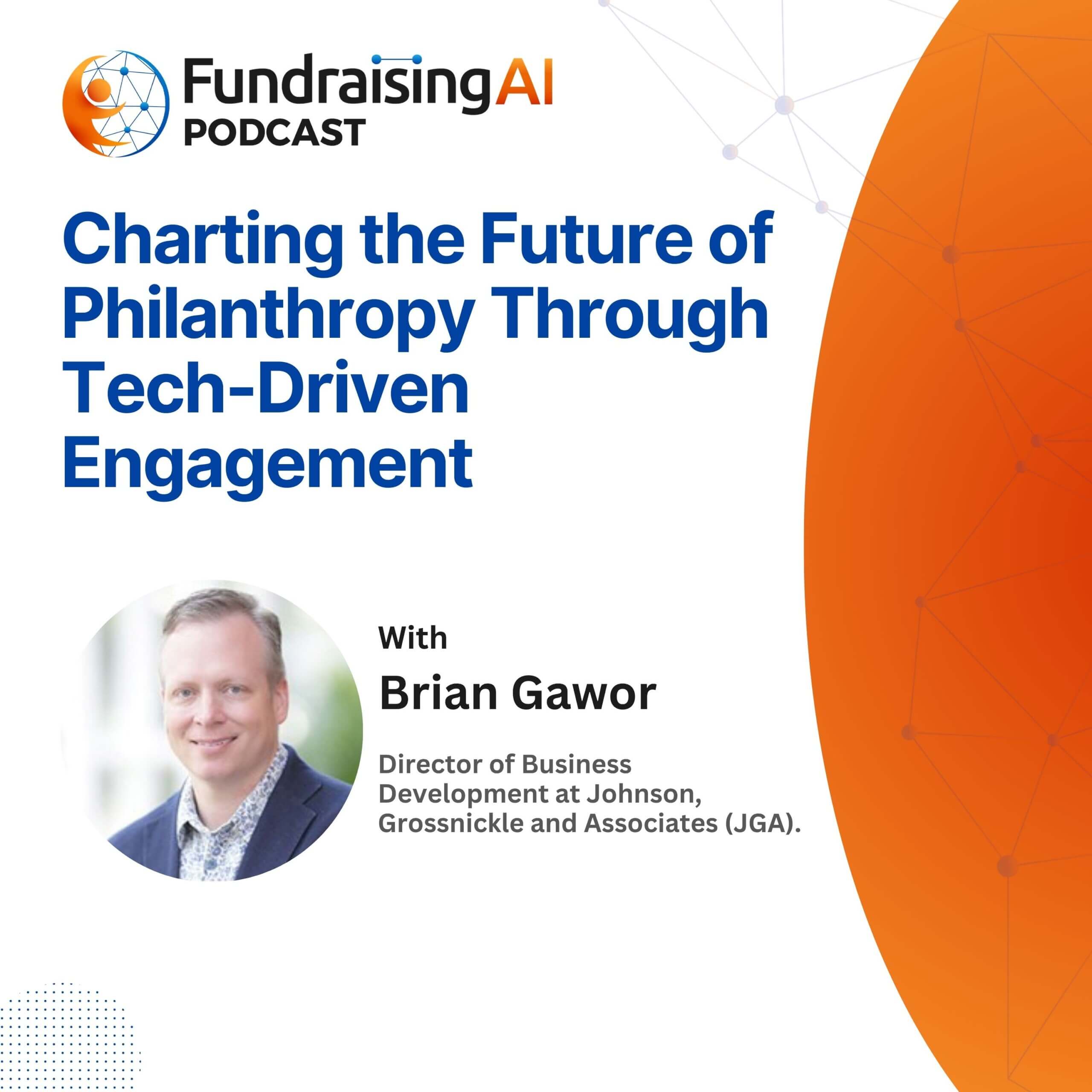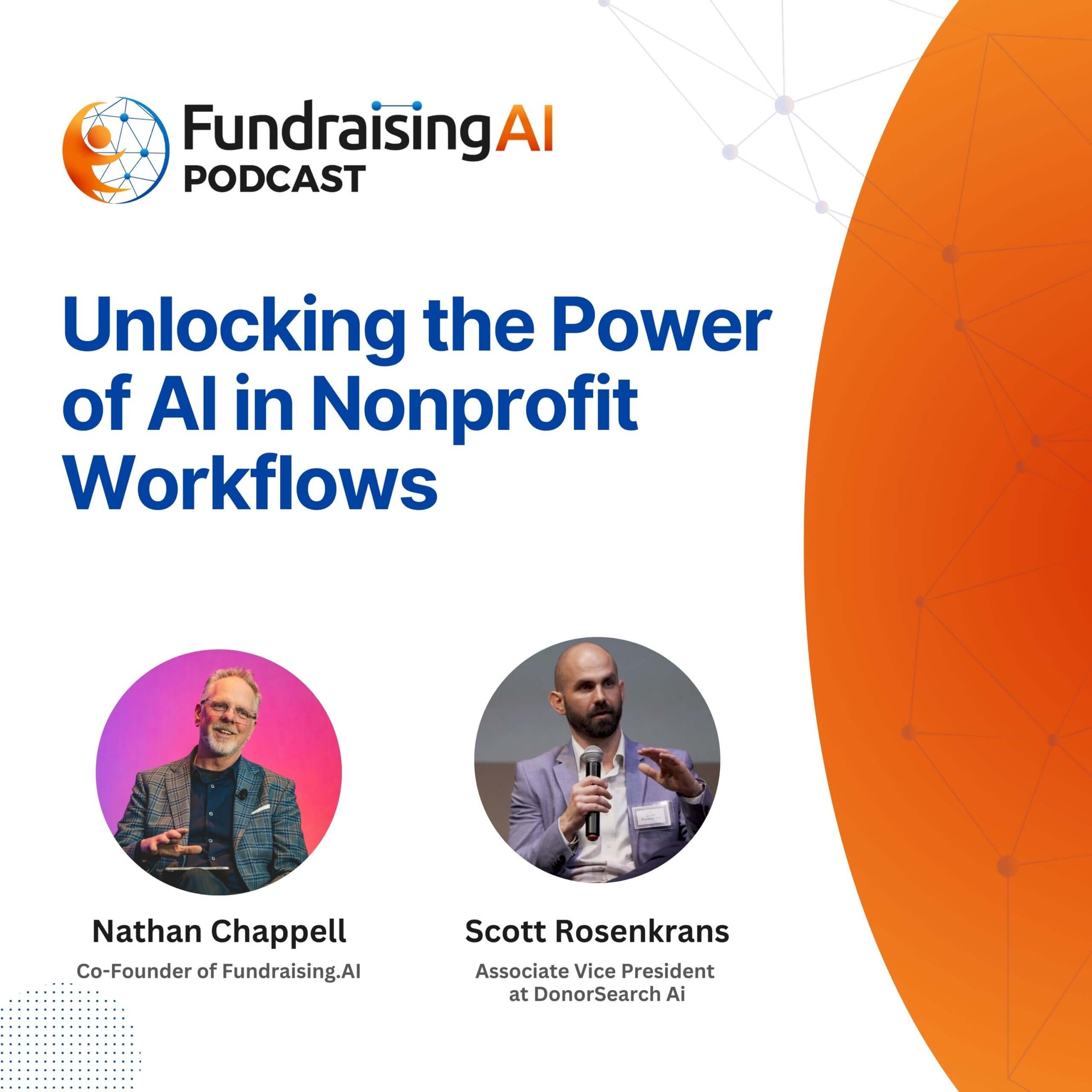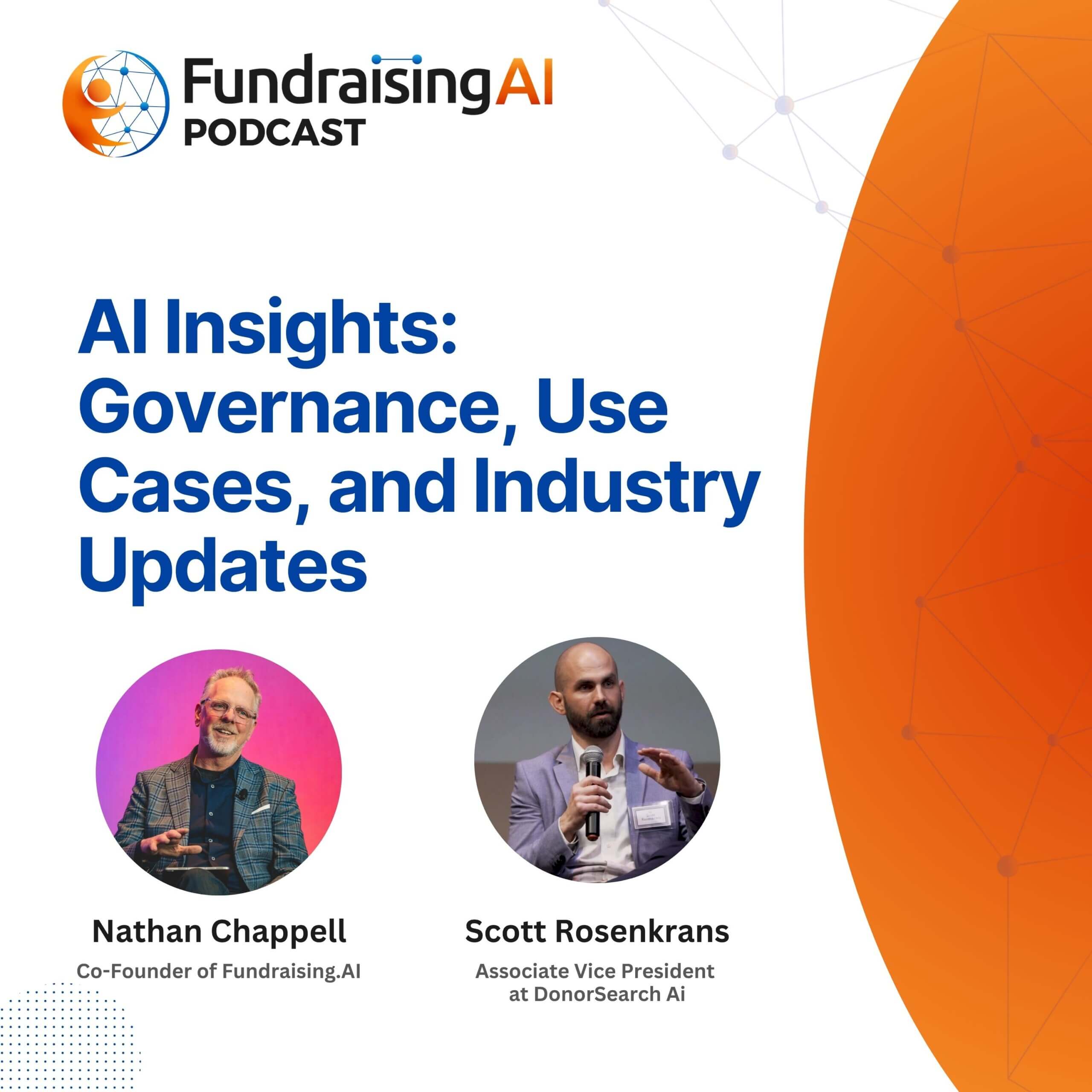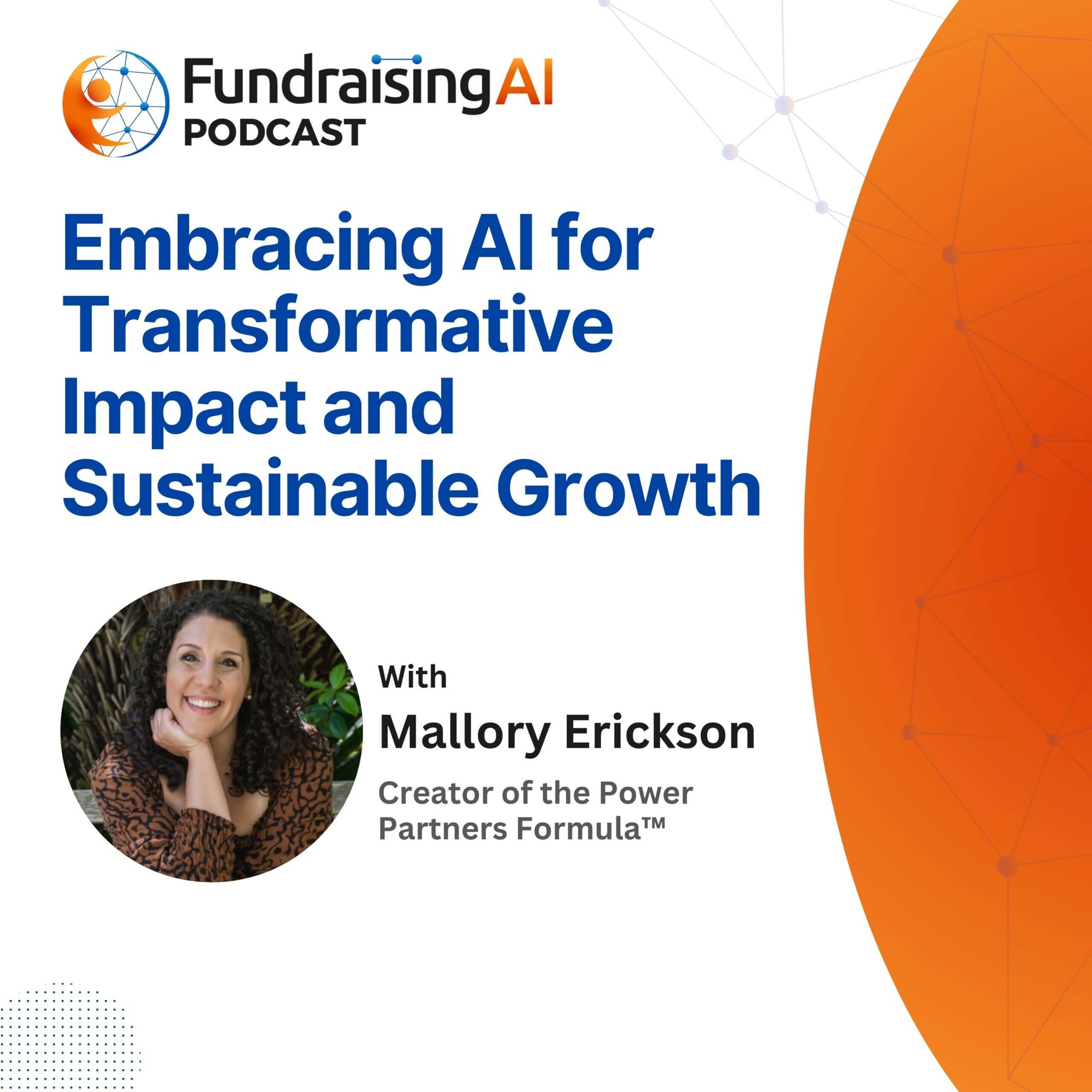Fundraising.AI
Episode 46
Episode 46 - 2024 AI Breakthroughs!
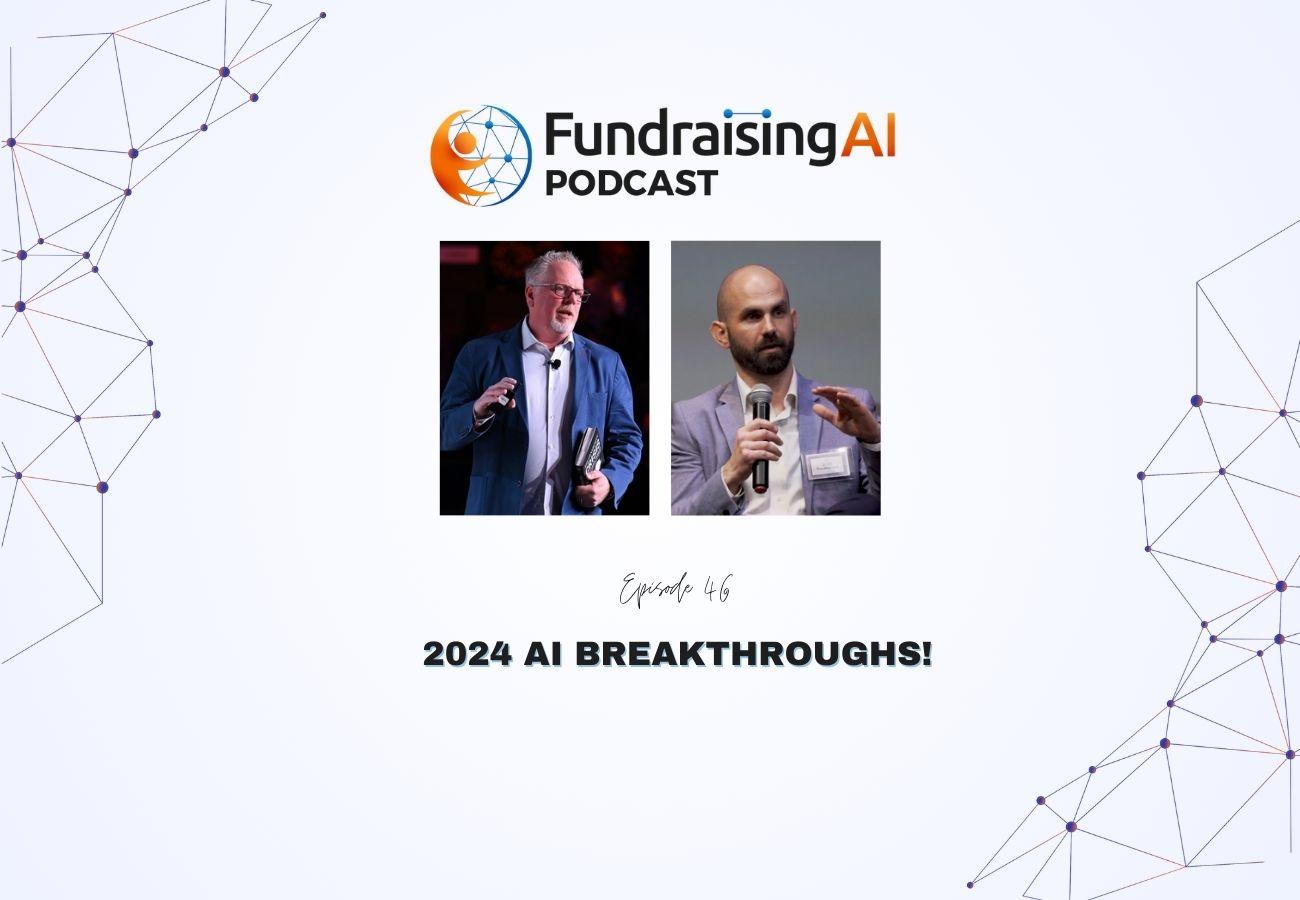
THIS EPISODE IS SPONSORED BY
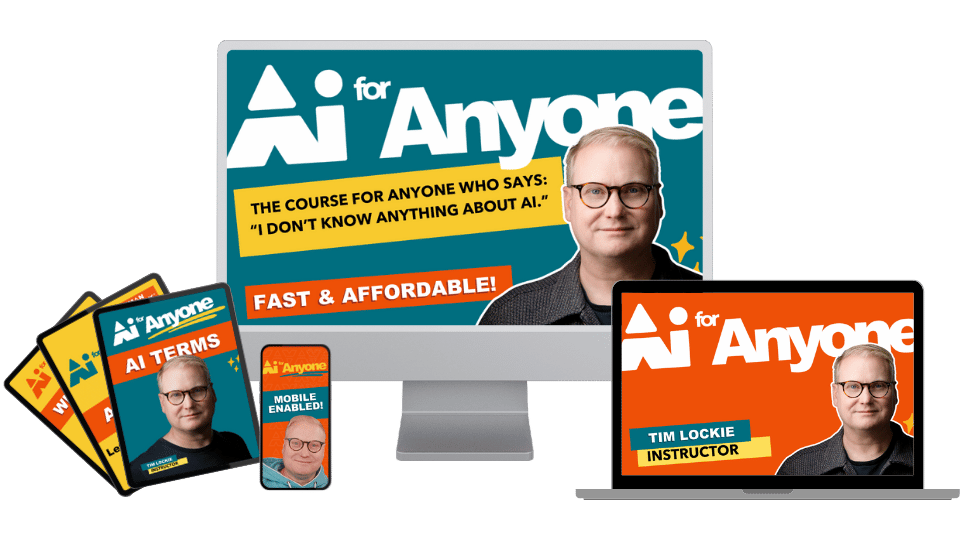
WATCH ON YOUTUBE

Listen To The Episode
OVERVIEW
In this episode, Nathan and Scott discuss the rapid advancements in AI, their implications for the fundraising sector, and what you need to look out for when using newly developed technologies in general.
Nathan starts the conversation by remembering life before ChatGPT two years ago and how it became a daily sensation for everyone where people are very excited to make their lives easier with the presence of the language model. Then Nathan and Scott talk about how remarkable the rapid improvement of technology is because we happen to witness firsthand how it evolves and improves, often surpassing tasks we once struggled with just months ago.
Scott shares his take on using AI in fundraising and strongly advises people not to rely on AI when it comes to relationship building. According to him, fundraising is all about building a relationship between two people, and while all the other sections of fundraising can be augmented, building relationships must be handled carefully in person.
Nathan concludes the conversation by reminding us that as we embrace new technologies, it’s normal to feel excited and hesitant, but we must remain cautious about the power these tools give us. Just because we can use technology doesn’t mean we should, especially when it could affect society in ways we haven’t fully anticipated.


EPISODE HIGHLIGHTS
- [02.50] ChatGPT turns 02 November this year.
- [06.06] The advancement of open AI.
- [09.15] What is agentic AI?
- [13.03] Nurturing relationships in fundraising.
- [16.42] The big announcements in the week.
- [25.18] Sora, OpenAI's video generation model.
- [29.00] Balancing innovation, ethics, and responsibility




TIPS AND TOOLS TO IMPLEMENT TODAY
- Take a measured step every time a new technology is introduced.
- In terms of fundraising, use AI for everything other than the actual fundraising.
- Prioritize nurturing relationships in fundraising.
- Always question the impact of new technology.
- Balance excitement with caution when using newly developed technologies.
- Put faith in tech companies but stay vigilant.
- Discuss the ethical implications and long-term impacts of new technologies openly.
- Train yourself to constantly question its appropriateness and potential for misuse.
- Take your time to consider both the positive and negative aspects before innovating.
- Always assess how a new technology aligns with the values and responsibilities of your specific industry.
ADDITIONAL RESOURCES
- Allie K MIller's Linkedin Learning AI Course
- ChatGPT4 accurately predicts human behavior in social experiments at 85%, across genders, races, and political affiliations.
- AI Adoption Is Driving Real Top - And Bottom-Line Impact For Enterprises (Gartner)
- Gen AI is hitting a trough of disillusionment (Gartner Hype Cycle)
- A new AI Pendant created to combat loneliness
- AI-first organizations
- More departures at OpenAI
- OpenAI's GPT-5 is coming out soon. Here's what to expect.



FAVORITE QUOTES
- “This exponential technology doesn't advance in terms of time. It's not it doesn't just progress the same way that other technologies progress.” - Nathan Chappell
- “AI trains AI, essentially. And humans are guiding it, telling it where it should go and what's right and what's not right.” - Nathan Chappell
- “We're watching it unfold in front of our eyes, and as we're using it, we have a process, a long process, that we're using technology every day, and we can see how that technology is literally getting better at doing the same tasks that we were doing six months ago.” - Nathan Chappell
- “Just because you can doesn't mean that you should.” - Scott Rosenkrans
- “You can use AI for everything but the actual fundraising. Fundraising is supposed to be a relationship between two people, people that have an opportunity to make an impact, and people that have reasons where an impact needs to be made.” - Scott Rosenkrans
- “Agentic AI means is essentially that AI is enabled to create its own AI.” - Nathan Chappell
- “We have to create systems within our own organizations and within in our own heads. How, anytime that we are introduced to a new technology, is not to just say, let's just use it without any implications or ramifications. Let's take a measured approach every single time.” - Nathan Chappell
- “Augment your work, the part of the work that you don't like to do so that you could do more of the work that you like to do.” - Nathan Chappell
- “Take the time to discuss that for yourself, for the organization you're with, what's appropriate for one sector, is completely different than if you're in the nonprofit sector, where we operate in the currency of trust.” - Nathan Chappell
- “We have to almost condition ourselves almost every time to say, here's a new technology. What are the long term consequences, what are the unintended consequences?.” - Nathan Chappell
MEET YOUR HOSTS
Nathan Chappell
As a thought leader, public speaker, author and inventor, Nathan is one of the world’s foremost experts on the intersection between Artificial Intelligence and philanthropy. Nathan serves as Senior Vice President of DonorSearch AI, where he leads AI deployments for some of the nation’s largest nonprofit organizations. Nathan’s subject matter expertise has been featured in several publications, including Fast Company, University of Notre Dame and the Association of Healthcare Philanthropy. In 2021, Nathan founded Fundraising.Ai as a member-centric collaboration of nonprofit professionals with a focus on data ethics, data equality, privacy and security, sustainability. Nathan presented the first TEDx on the topic of artificial intelligence and the future of generosity in 2018. Nathan is a member of the Forbes Technology Council and holds a Masters in Nonprofit Administration from University of Notre Dame, an MBA from University of Redlands, a certificate in International Economics from University of Cambridge and a certificate in Artificial Intelligence from MIT.

Scott Rosenkrans
Scott Rosenkrans is the Assistant Vice President of DonorSearch Ai and has been with the organization for three years. He began his journey in the nonprofit sector twelve years ago as a prospect researcher. He quickly became fascinated with data as he noticed the organization that he previously worked for was amassing a wealth of information but was unsure how to efficiently use the data and resources to its full potential. This led him to become interested in predictive modeling and data analytics. During this time, he began to create an immense commitment to delivering tailor-made machine learning models to nonprofits.
The thing that Scott loves most about working for DonorSearch is the ability to prioritize what is best for the client and nonprofit sector above all else. He believes that growth is our most important core value because the DSAi team continuously evolves and brings a unique perspective that provides value to our clients. He stays ahead of industry trends because of his insatiable drive to constantly try out new things.
Favorite nonprofit: Shriner’s Children Hospital because of their extreme commitment to providing exceptional medical care, while also alleviating the financial burdens on families.
